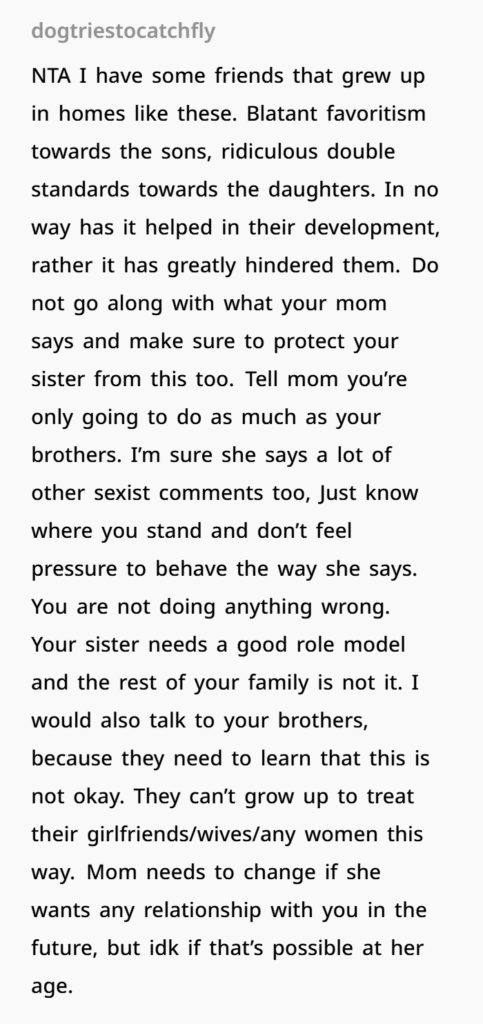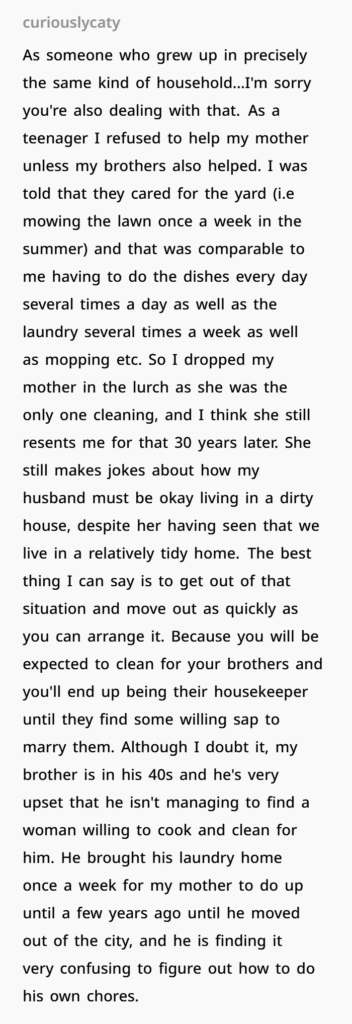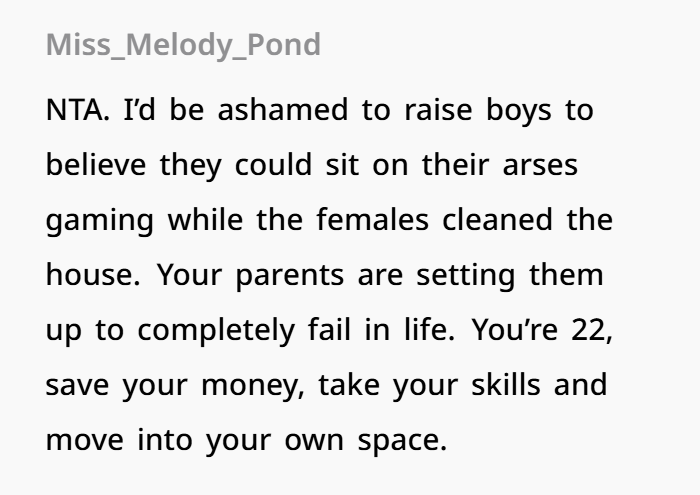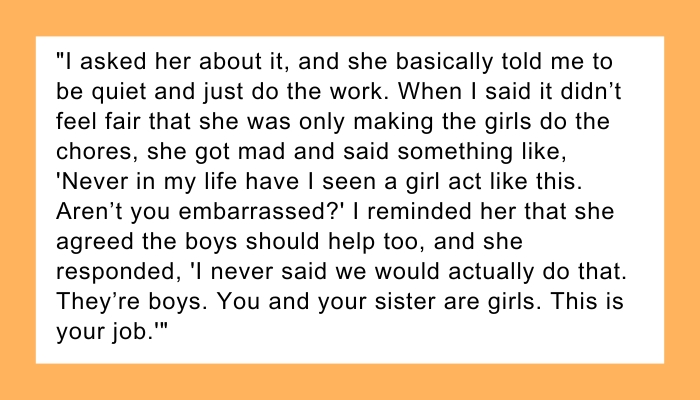Sexist Parents Demand Daughter Do Chores While Brothers Hang Out, Daughter Quits In Protest
Traditional gender roles in families are changing fast, and many people are happy to see it. The old belief that household chores are only for women just doesn’t make sense anymore. Yet, some people still hold on to these outdated ideas.
One young woman recently shared her experience. Her parents expect her and her sister to do all the cleaning, cooking, and other chores. Meanwhile, her three brothers don’t help at all. Tired of the unfair treatment, she finally said, “Enough is enough.” She stopped doing the chores in protest.
Now she wonders if refusing to help was the wrong move. But her action highlights an important question: Is it fair to expect only women to do domestic work while men relax?
In today’s world, equal responsibilities at home are key to a healthy and respectful family. It’s time to move past old habits and promote gender equality in the household.
Read for more info Reddit
Gender norms are being shattered daily, but this woman’s sexist parents don’t seem to have noticed
The family house needed a deep clean, so the woman suggested everyone pitch in and help out

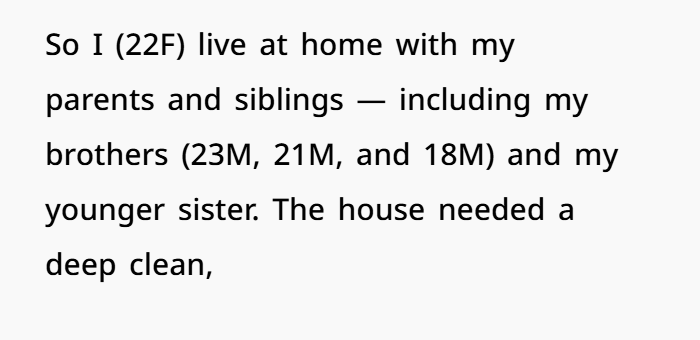
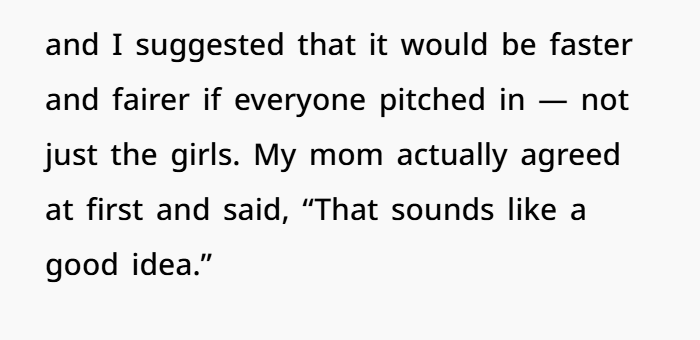

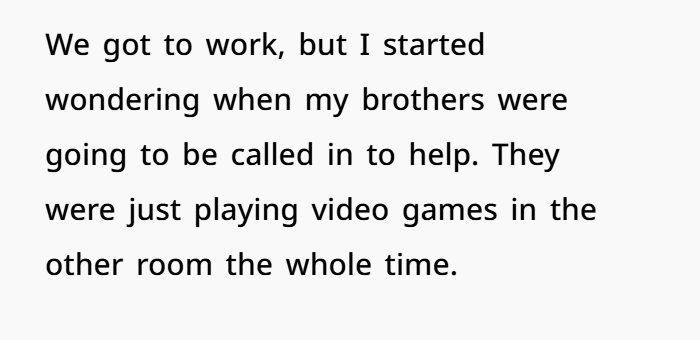
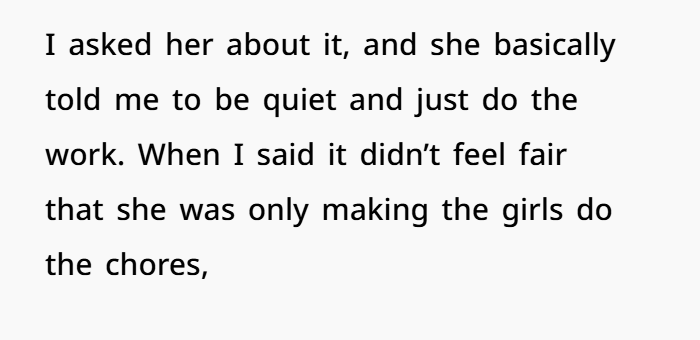

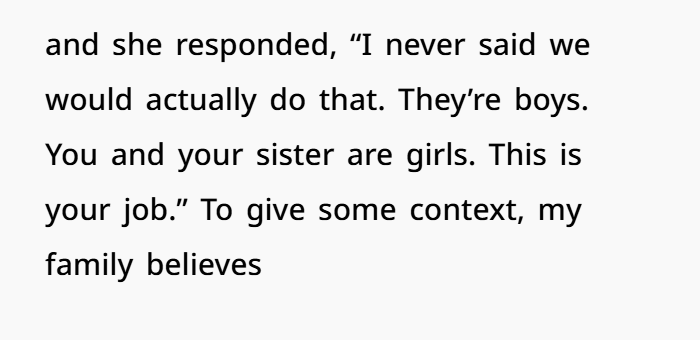
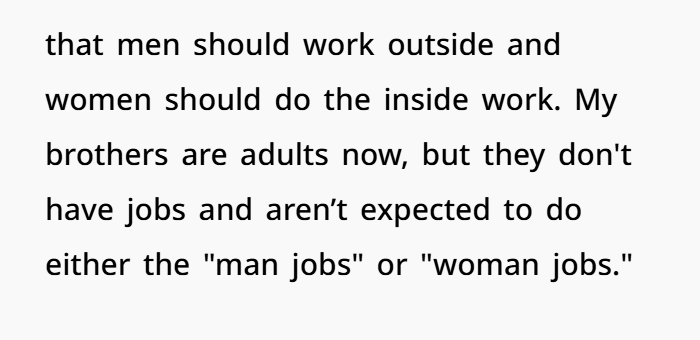
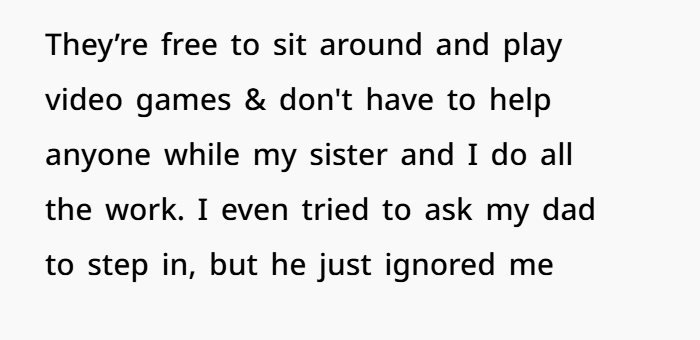
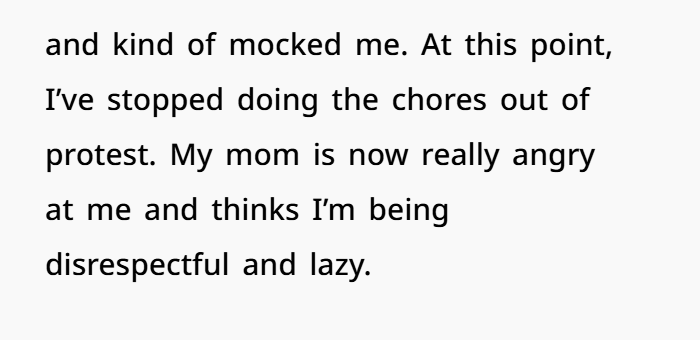

The woman said that it was unfair and quit cleaning in protest, but is now wondering if that makes her a jerk
When the original poster (OP) suggested a deep cleaning of the family home, she thought it would be a team effort. She lives with her parents, three brothers, and younger sister, so she assumed everyone would help out. Her mother even agreed and assigned chores—but only to the daughters.
While OP vacuumed and her sister organized the rooms, the three brothers relaxed, completely excluded from the chore list. Expecting fairness, OP waited for her mom to involve them. But when she asked why the boys weren’t helping, her mother brushed her off. Instead of support, OP was told to stop complaining and keep working.
When OP brought up the issue again, things got worse. Her mother became angry and said, “They’re boys. You and your sister are girls. This is your job.” This response made it clear: traditional gender roles were more important to her parents than equal responsibility.
The boys? Still playing video games while the girls did all the work.
That was the final straw. OP stopped doing chores in protest. Her father mocked her, and her mother called her lazy and disrespectful. Her peaceful stand for gender fairness in the household sparked outrage—but she wasn’t trying to rebel. She just wanted equal treatment.
Now she’s asking: “Am I wrong for standing up for myself?”
From what we can see, OP’s parents are stuck in old beliefs, supporting a system of gender bias in the family. Maybe that’s how they were raised. But in 2025, many young people like OP are challenging outdated cultural norms. And she’s absolutely right to speak up.
So how can she help her parents understand the importance of gender equality at home? Let’s look at some expert-backed ways to promote fairness, respect, and shared responsibility in any household.
According to UN Women, traditional ideas of masculinity often stop men from doing housework or showing their emotions in healthy ways. These outdated beliefs are a major barrier to gender equality. The best place to start changing them? At home.
Research on Psychology Today shows that family conflicts, grudges, and poor communication can cause deep emotional wounds that last for years—even into old age. In many dysfunctional families, there’s little unity or understanding. Instead, members are overly critical and lack healthy boundaries.
In his work for the Educational Foundation for Children’s Care, expert Leon B. Wellington shares practical tips to build gender equality within families:
- Encourage open, respectful conversations
- Divide household responsibilities fairly
- Challenge harmful gender stereotypes in TV, books, and social media
- Teach empathy and mutual respect
In OP’s case, it’s clear that she can’t change her family’s mindset by staying silent. To break the cycle of toxic gender roles and unfair expectations, she needs to sit everyone down for an honest talk. If nothing changes, she may continue living in a stressful, emotionally unhealthy environment until she leaves home.
A strong family is built on fairness, open communication, and shared responsibility—not outdated traditions that favor one gender over another.
In the comments, readers agreed that the original poster was not being the jerk in the situation, and some even suggested she move out


